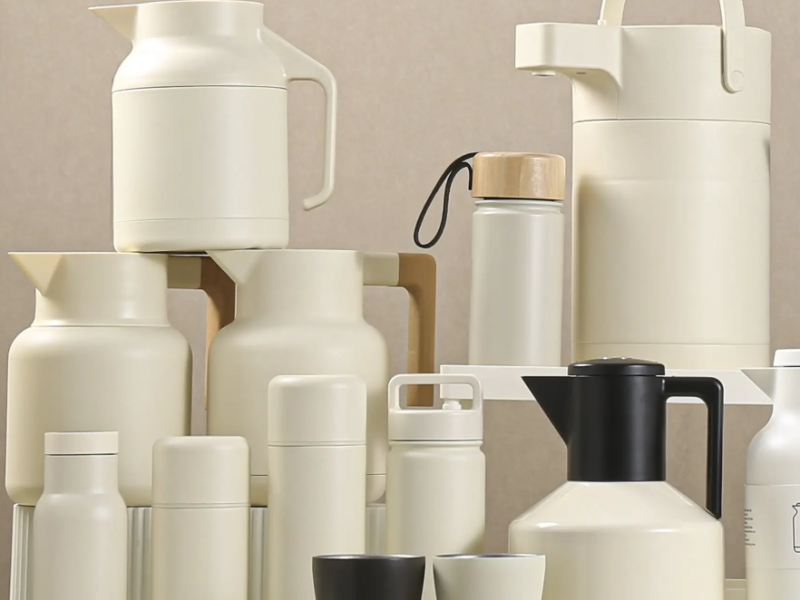
Importance des bouteilles d'eau
Dans notre vie quotidienne, les bouteilles d'eau jouent un rôle important. Au bureau, à la maison ou lors d'activités de plein air, se réapprovisionner en eau à tout moment et en tout lieu est la clé pour rester en forme. Cependant, il existe de nombreux types de matériaux pour les bouteilles d'eau couramment utilisées, tels que l'acier inoxydable, le verre, le plastique, l'aluminium et le silicone ; ces matériaux ont des effets différents sur la qualité de l'eau.
Récemment, avec l'amélioration de la conscience sanitaire, les gens ont également accordé une grande attention à la sécurité de l'eau potable. Le choix du matériau de la bouteille d'eau ne détermine pas seulement son goût, mais peut aussi influencer la santé humaine d'une certaine manière. Par exemple, l'utilisation à long terme de certains plastiques peut entraîner la fuite de substances toxiques, tandis que le problème de la dissolution des ions métalliques apparaît lors de l'utilisation de récipients en aluminium. Il est donc nécessaire de choisir un matériau approprié et sûr pour fabriquer son récipient à eau.
En comprenant les caractéristiques et les risques pour la santé des différents matériaux utilisés pour les bouteilles d'eau, nous pouvons faire des choix plus judicieux pour que chaque gorgée d'eau potable soit bénéfique pour notre santé.En tant que Fabricant de bouteilles d'eau en acier inoxydableJe partagerai avec vous les connaissances pertinentes.
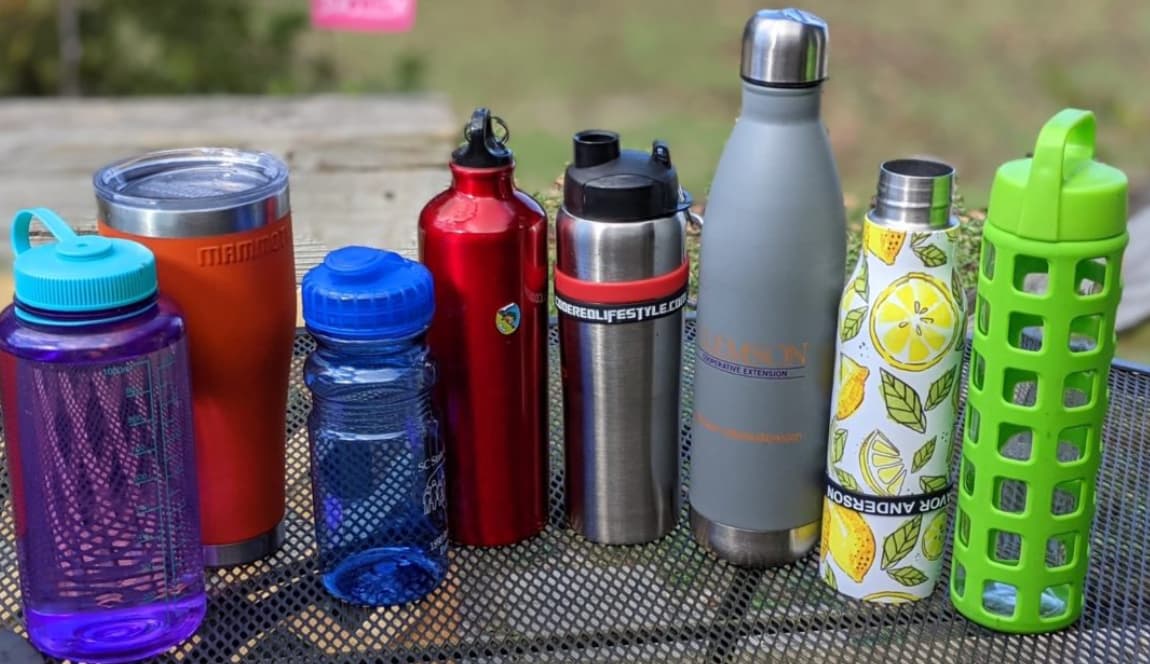
Différents matériaux pour les bouteilles d'eau
Bouteille d'eau en acier inoxydable
L'acier inoxydable est un métal qui résiste à la corrosion et qui est stable à haute et basse température.
En outre, l'acier inoxydable ne réagit pas avec l'eau potable et ne libère pas de substances nocives, ce qui en fait un choix de bouteille d'eau très sain.
Les bouteilles d'eau en acier inoxydable ont généralement une bonne fonction d'isolation et peuvent conserver la température des boissons pendant longtemps. En revanche, les bouteilles en acier inoxydable de mauvaise qualité peuvent donner un goût métallique après un usage prolongé ; il est donc très important de n'utiliser que de l'acier inoxydable de qualité alimentaire !
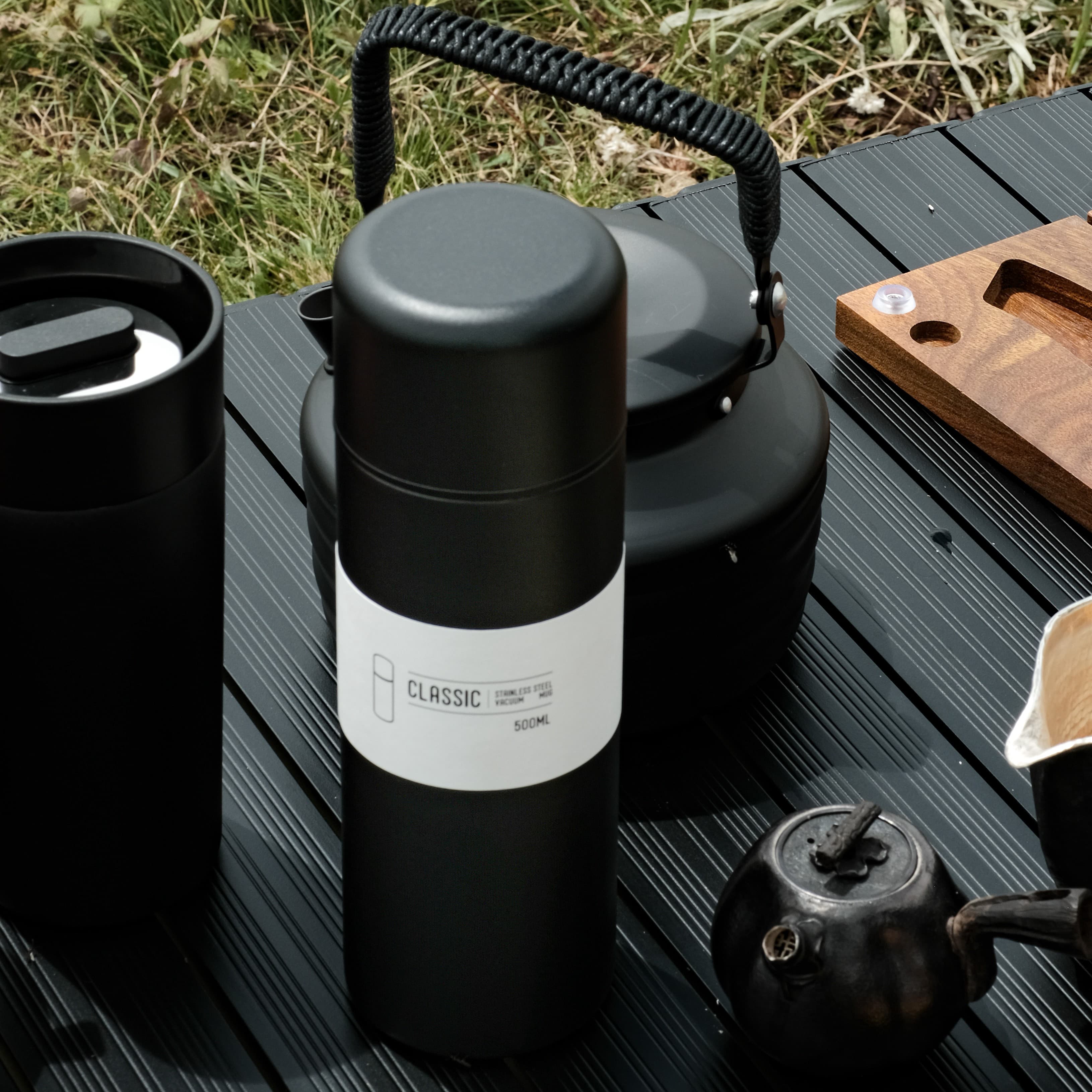
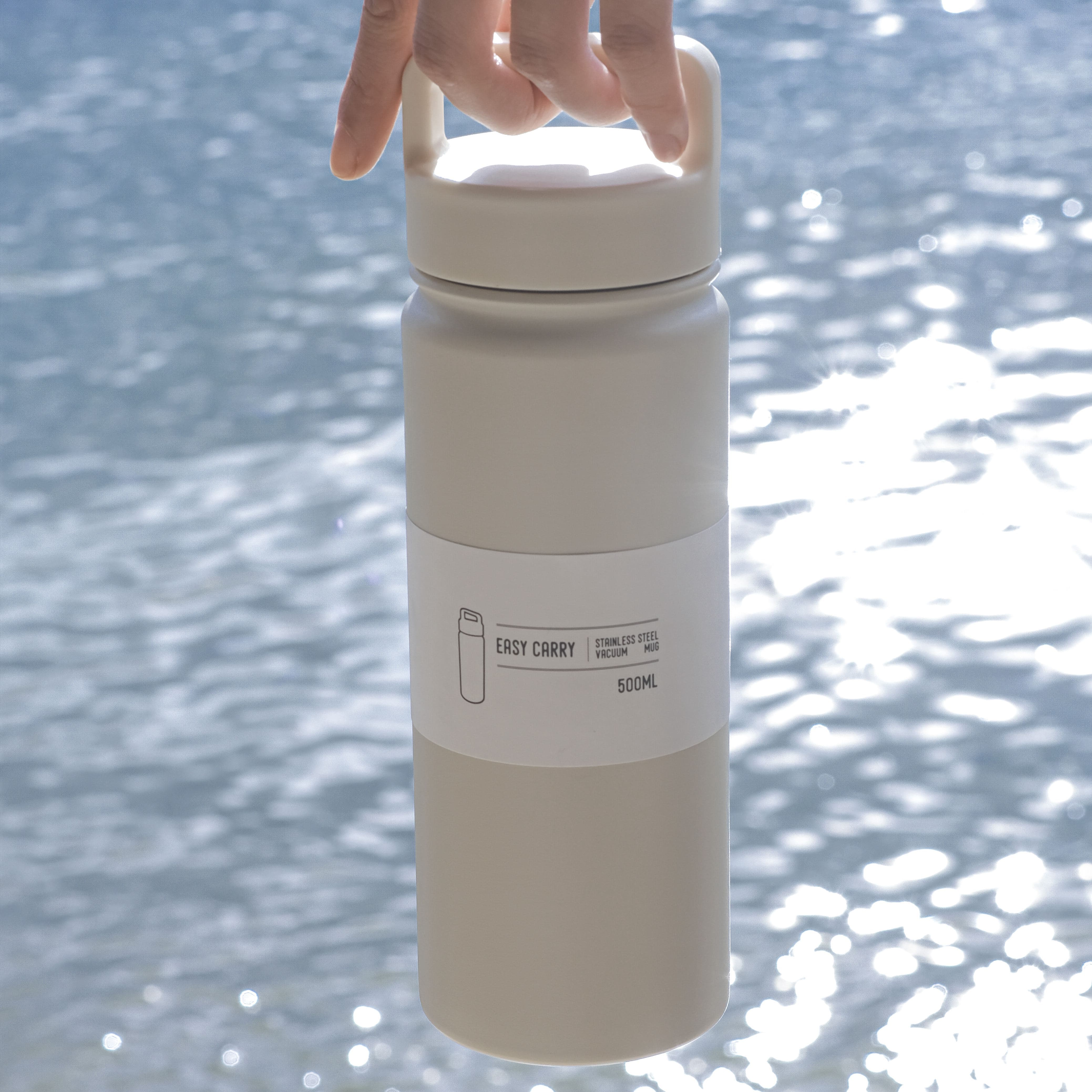
Bouteille d'eau en verre
Les bouteilles d'eau en verre sont appréciées pour leur sécurité et leur pureté naturelles. Le verre lui-même est inerte, ce qui signifie qu'il ne réagit pas chimiquement avec l'eau et ne libère pas de substances nocives. Qu'il s'agisse d'eau froide, d'eau chaude, de jus, de thé ou d'autres boissons, les bouteilles d'eau en verre peuvent conserver le goût original du liquide sans produire d'odeur.
Toutefois, les bouteilles d'eau en verre présentent également des inconvénients. Tout d'abord, elles sont relativement lourdes et ne conviennent pas pour être emportées, en particulier lors d'un exercice physique ou d'un voyage. Deuxièmement, les bouteilles d'eau en verre sont relativement fragiles, notamment lorsqu'elles tombent d'une certaine hauteur ou qu'elles sont soumises à des forces extérieures, elles peuvent se casser ou se fissurer. Cela n'entraîne pas seulement des inconvénients lors de l'utilisation, mais peut également poser des problèmes de sécurité.
Malgré cela, les bouteilles d'eau en verre restent l'un des choix idéaux pour obtenir une eau potable saine, en particulier au bureau ou à la maison. En garantissant la sécurité, les bouteilles d'eau en verre peuvent vous accompagner pendant longtemps et devenir un partenaire santé fiable dans la vie quotidienne.
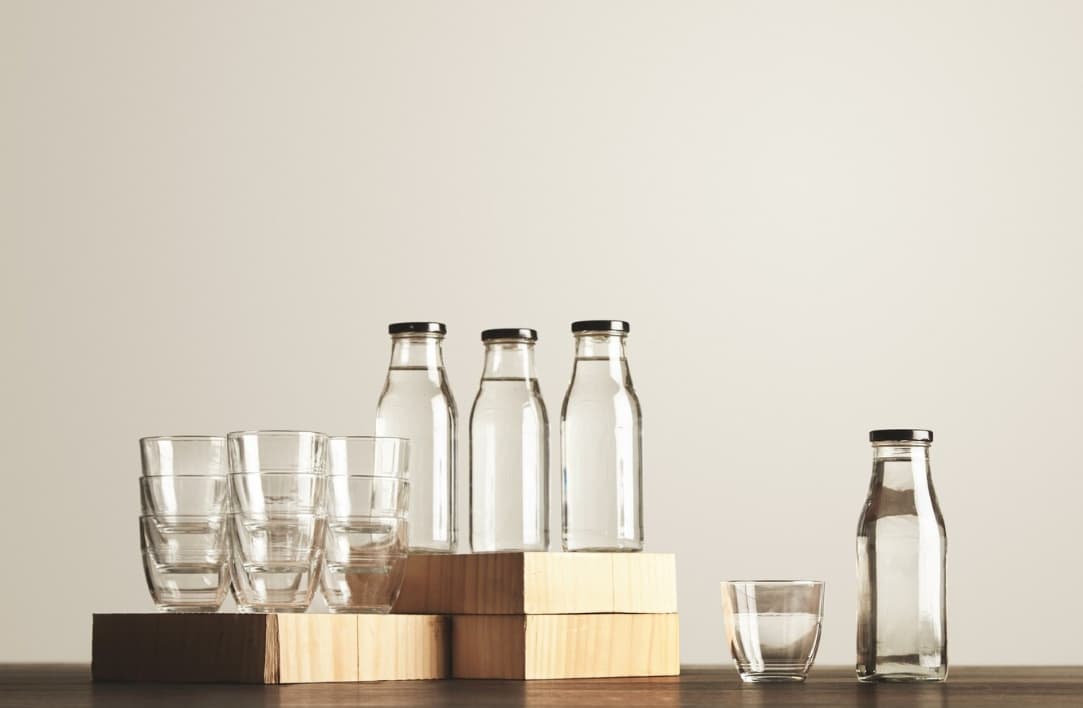
Bouteille d'eau en plastique
Les bouteilles d'eau en plastique sont généralement populaires sur le marché en raison de leur légèreté, de leur faible coût et de leur diversité. Cependant, la controverse a toujours entouré leur salubrité et leur sécurité en tant que matériaux. Les matériaux les plus courants utilisés pour fabriquer ces bouteilles sont le polycarbonate (PC), le polyéthylène (PE) ou le polypropylène (PP), qui peuvent éventuellement contenir des substances chimiques dangereuses comme le bisphénol A (BPA). Le BPA est une substance qui peut être libérée à des températures élevées et dont l'ingestion à long terme peut avoir des effets négatifs sur la santé humaine. C'est pourquoi de nombreuses personnes ont commencé à rechercher des bouteilles d'eau en plastique étiquetées "sans BPA".
Même dans ce cas, les bouteilles d'eau en plastique sans BPA peuvent libérer différentes substances nocives lorsqu'elles sont utilisées de manière répétée, chauffées ou placées à la lumière directe du soleil. Ainsi, si les bouteilles d'eau en plastique sont intéressantes en termes de coût et de poids, elles posent certains problèmes de santé et de sécurité. Pour éviter ces problèmes, il est conseillé de ne pas utiliser les bouteilles d'eau en plastique avec des boissons chaudes et de ne pas les laisser au soleil pendant de longues périodes. Enfin, les bouteilles d'eau en plastique peuvent facilement absorber les odeurs et les couleurs et peuvent conserver les odeurs après une certaine période d'utilisation ; elles doivent donc être remplacées régulièrement.
Bien que le prix abordable et la commodité des bouteilles d'eau en plastique séduisent de nombreux utilisateurs, il est important que les consommateurs tiennent compte de la qualité et de la certification de sécurité des matériaux utilisés dans les bouteilles d'eau en plastique avant d'en choisir une.
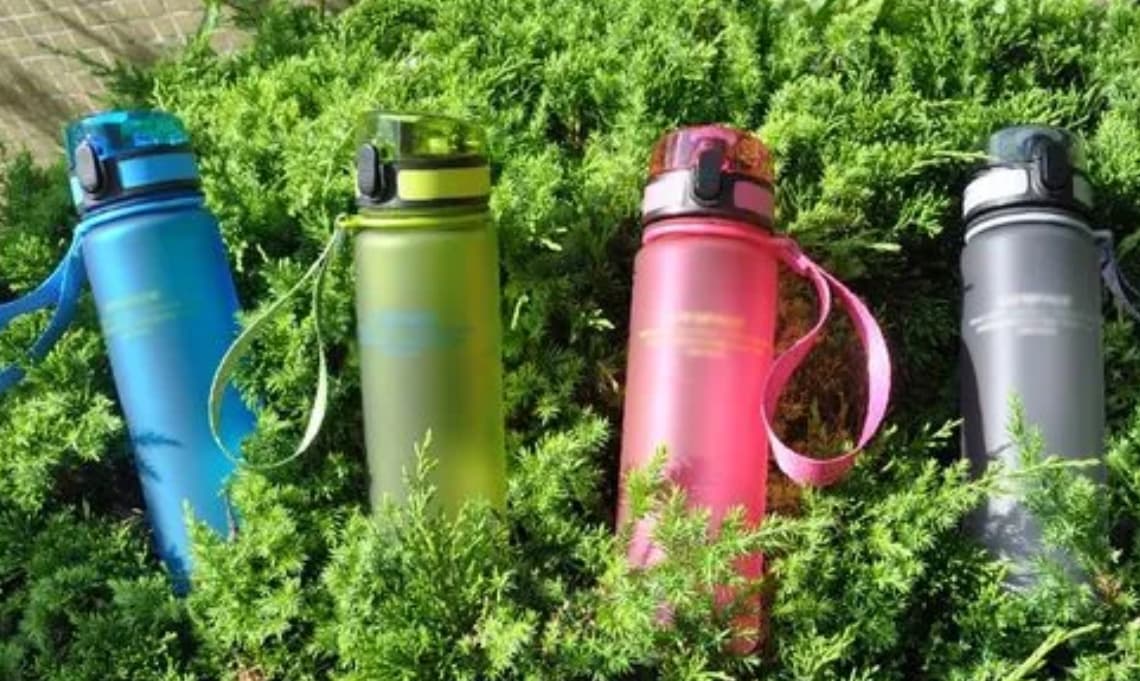
Bouteille d'eau en aluminium
Les bouteilles d'eau en aluminium sont appréciées par de nombreux amateurs d'activités de plein air en raison de leur légèreté, de leur durabilité et de leur bonne conductivité thermique. L'aluminium lui-même possède d'excellentes propriétés mécaniques et peut résister à certains chocs et pressions sans être facilement déformé ou cassé. C'est pourquoi les bouteilles d'eau en aluminium sont souvent utilisées comme récipients portables pour les activités de plein air telles que l'alpinisme et la randonnée.
Cependant, en tant que métal actif, l'aluminium peut subir une oxydation au contact de l'eau, entraînant la dissolution des ions d'aluminium, ce qui affecte la qualité de l'eau et peut nuire à la santé. Pour éviter cela, les bouteilles d'eau en aluminium sont généralement recouvertes d'un revêtement protecteur à l'intérieur, qui est généralement fait de résine époxy ou de plastique pour isoler le contact direct entre l'eau et l'aluminium.
Bien que le revêtement puisse empêcher efficacement la dissolution des ions d'aluminium, la sécurité des bouteilles d'eau en aluminium peut être affectée si le revêtement est endommagé ou usé. En outre, les bouteilles d'eau en aluminium ne conviennent pas aux boissons acides ou gazeuses, car ces liquides peuvent accélérer le vieillissement du revêtement ou réagir avec l'aluminium.
Bien que les gourdes en aluminium offrent des avantages considérables en termes de portabilité et de durabilité, vous devez veiller à l'intégrité du revêtement pendant l'utilisation et éviter de contenir des liquides susceptibles de déclencher des réactions chimiques. Les gourdes en aluminium restent une option intéressante pour les amateurs d'activités de plein air, mais elles nécessitent une attention particulière en termes d'entretien et de maintenance pour garantir leur sécurité à long terme.
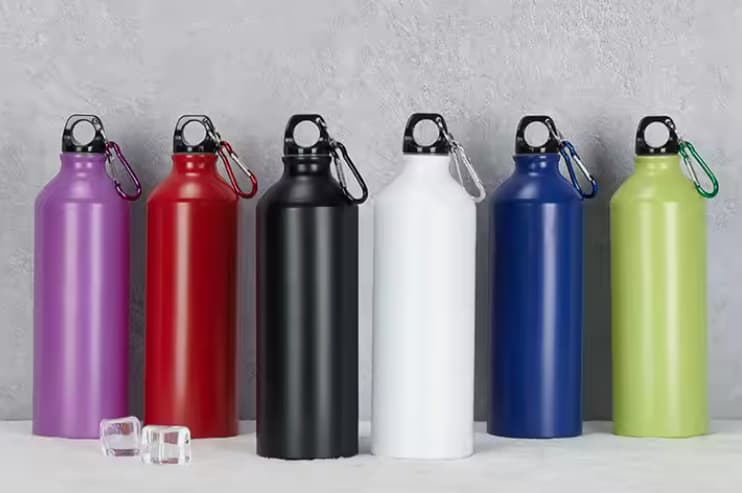
Bouteille d'eau en silicone
Les bouteilles d'eau en silicone sont devenues de plus en plus populaires auprès des consommateurs ces dernières années en raison de leur douceur unique et de leur conception pliable. Le gel de silice est un matériau polymère doté d'une grande résistance à la chaleur et d'une grande stabilité chimique. Il est capable de résister à des températures extrêmement élevées sans se dégrader, ce qui rend les bouteilles d'eau en silicone parfaites pour contenir de l'eau chaude ou froide, ou même pour passer au four à micro-ondes.
Une autre caractéristique notable des bouteilles d'eau en silicone est leur portabilité et leur compressibilité. Lorsqu'elle n'est pas utilisée, la bouteille d'eau en silicone peut être pliée ou comprimée pour être facilement rangée et transportée, ce qui est idéal pour les voyages, le fitness ou les activités de plein air. En outre, le matériau en silicone ne contient pas de produits chimiques nocifs tels que le BPA, ne réagit pas chimiquement avec l'eau et ne libère pas de substances nocives. Il s'agit d'un récipient d'eau potable très sûr.
Cependant, les bouteilles d'eau en silicone ont aussi quelques limites. Tout d'abord, en raison de leur souplesse, les gourdes en silicone ne sont pas aussi stables que les gourdes en matériaux rigides lorsqu'elles contiennent des liquides, ce qui peut parfois s'avérer un peu gênant. En outre, bien que le silicone soit durable, il peut s'érafler, se rayer ou se décolorer avec le temps, ce qui peut affecter l'apparence et la durée de vie de votre gourde.
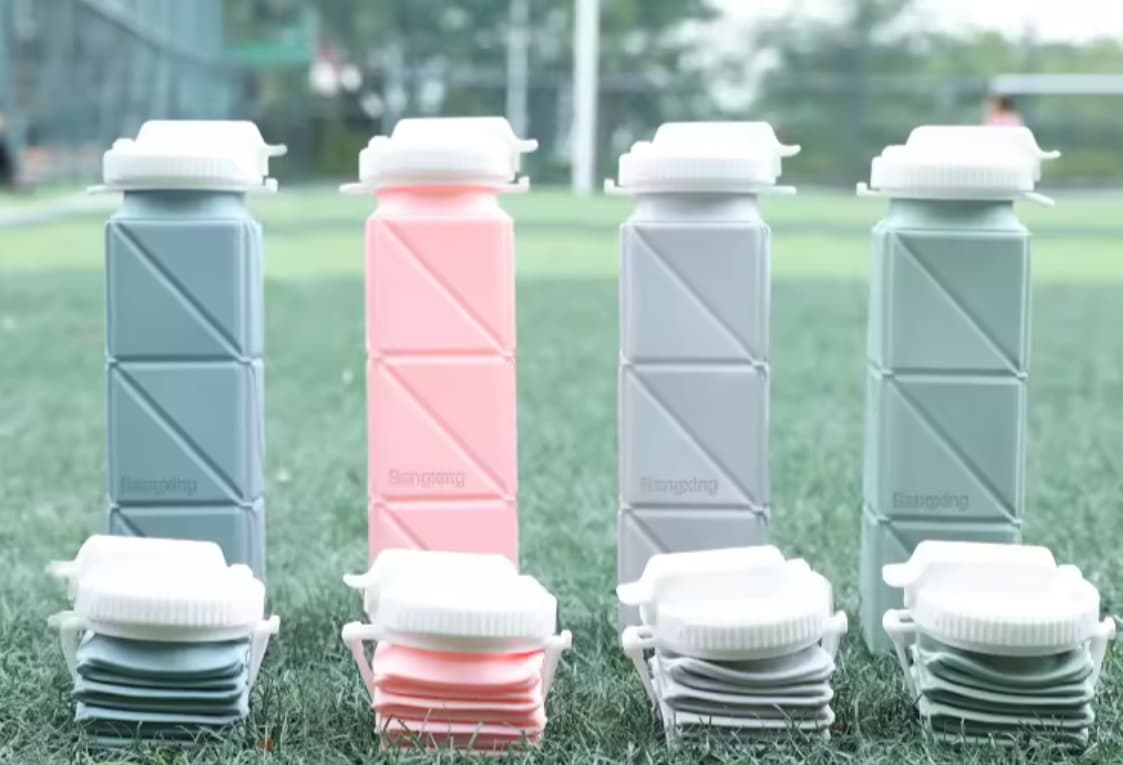
Dans l'ensemble, les bouteilles d'eau en silicone sont devenues un choix populaire pour les consommateurs modernes en raison de leur sécurité, de leur portabilité et de leur durabilité, en particulier pour ceux qui doivent voyager fréquemment ou qui les utilisent pour faire du sport. Lors du choix d'un bidon en silicone, il est recommandé d'opter pour des produits de haute qualité, certifiés de qualité alimentaire, afin de garantir la sécurité et la santé lors de l'utilisation.
Quel est le matériau le plus sûr pour une bouteille d'eau ?
Acier inoxydable et plastique
L'acier inoxydable et le plastique sont des matériaux couramment utilisés lors du choix d'une bouteille d'eau, et leurs effets sur la santé varient considérablement. Les principaux avantages des bouteilles d'eau en acier inoxydable sont leur sécurité et leur durabilité. En tant que matériau de qualité alimentaire, l'acier inoxydable ne libère pas de substances chimiques nocives, de sorte qu'il n'est pas facile d'avoir des effets négatifs sur la santé en buvant de l'eau.
En comparaison, bien que les bouteilles d'eau en plastique présentent des avantages en termes de prix et de poids, leur santé et leur sécurité sont plus préoccupantes. De nombreuses bouteilles d'eau en plastique peuvent contenir du bisphénol A (BPA) ou d'autres substances chimiques potentiellement dangereuses. En particulier dans les environnements à haute température, ces substances peuvent être libérées dans l'eau, ce qui nuit à la sécurité de l'eau potable. Bien que les bouteilles d'eau en PPSU présentent une résistance supérieure à la corrosion et ne produisent pas de substances nocives, leur prix unitaire est généralement 30%-40% plus élevé que celui des bouteilles d'eau en acier inoxydable.
En résumé, l'acier inoxydable est généralement considéré comme un meilleur matériau pour les bouteilles d'eau du point de vue de la santé et de l'économie, et les avantages pour la santé et la durabilité à long terme en font le premier choix pour de nombreux consommateurs.
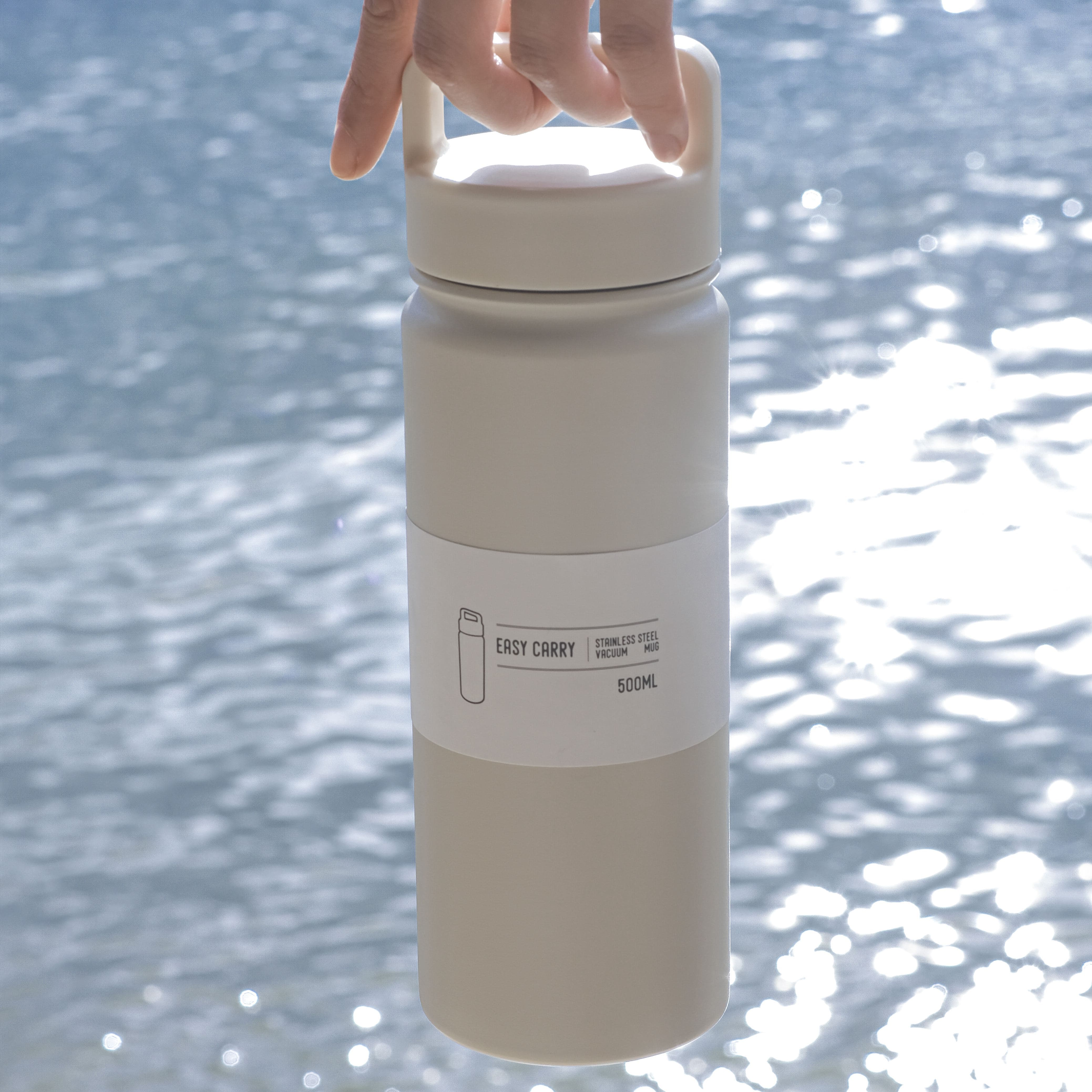
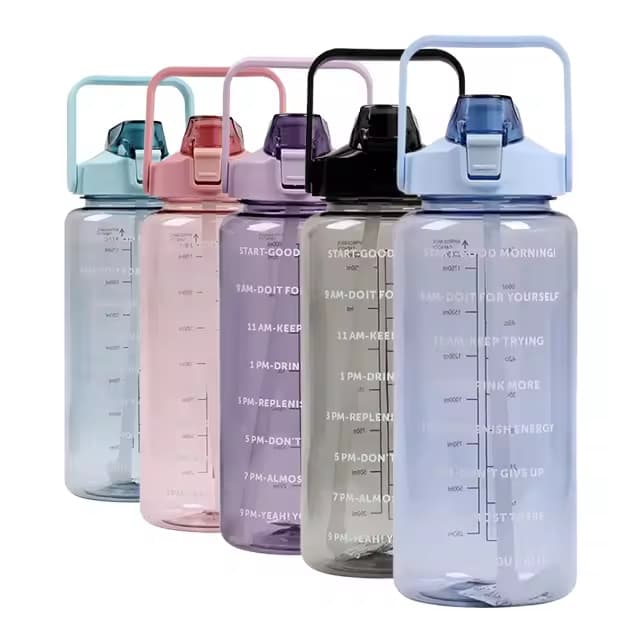
Bouteille d'eau en acier inoxydable et bouteille d'eau en aluminium
Bien que les bouteilles d'eau en acier inoxydable et les bouteilles d'eau en aluminium soient toutes deux fabriquées en métal, elles sont différentes en termes de sécurité et d'utilisation à long terme. L'acier inoxydable ne réagit pas chimiquement avec l'eau ou d'autres boissons, ne libère pas de substances nocives et ne présente pratiquement aucun risque pour la santé humaine. L'acier inoxydable de qualité alimentaire est particulièrement utilisé dans divers récipients pour boissons, et les bouteilles d'eau en acier inoxydable ont généralement une bonne durabilité et de bons effets de préservation de la chaleur, convenant à divers environnements d'utilisation quotidienne et extérieure.
L'aluminium est un métal relativement actif. S'il n'est pas traité, il peut libérer des ions d'aluminium lorsqu'il entre en contact avec des liquides, ce qui peut présenter des risques potentiels pour la santé humaine. Les bouteilles d'eau en aluminium sont généralement dotées d'un revêtement protecteur à l'intérieur pour éviter tout contact direct entre l'aluminium et les boissons, mais ce revêtement peut perdre sa fonction protectrice en raison de l'usure ou de la détérioration au cours d'une utilisation à long terme, ce qui augmente le risque de dissolution d'ions d'aluminium. En outre, lorsque les bouteilles d'eau en aluminium sont remplies de boissons acides ou gazeuses, le revêtement peut être corrodé, ce qui augmente encore les risques pour la santé.
Bien que les bouteilles d'eau en aluminium présentent des avantages en termes de légèreté et de conductivité thermique, les bouteilles d'eau en acier inoxydable constituent sans aucun doute un choix plus sûr du point de vue de la santé. La stabilité chimique et la résistance à la corrosion de l'acier inoxydable lui permettent d'être performant dans une variété de scénarios d'utilisation, alors que les bouteilles d'eau en aluminium peuvent ne pas être aussi fiables que l'acier inoxydable dans des situations qui nécessitent un entretien particulier. C'est pourquoi, en particulier pour l'utilisation quotidienne ou le stockage à long terme de liquides, les bouteilles d'eau en acier inoxydable peuvent mieux garantir la santé et la sécurité de l'eau potable.
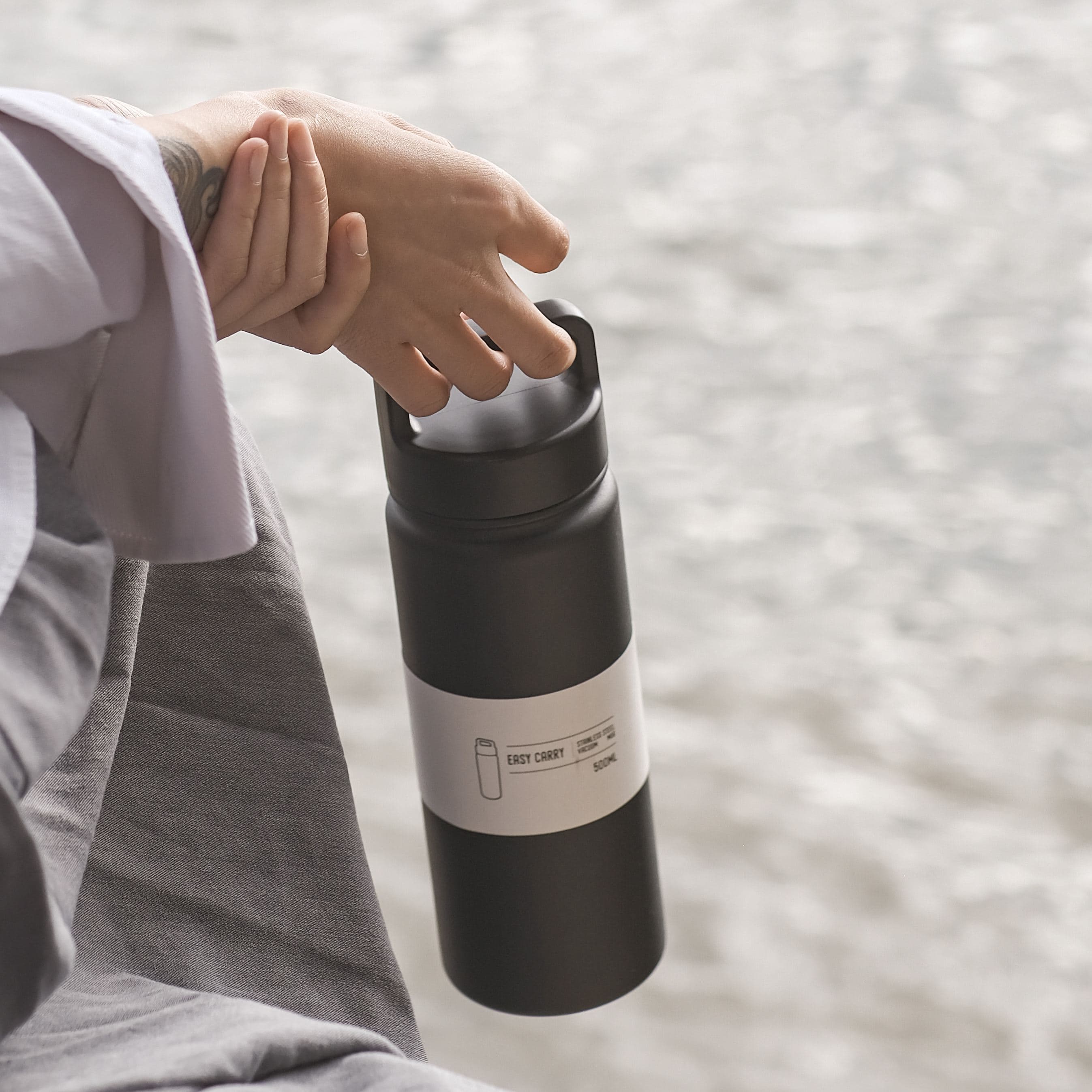
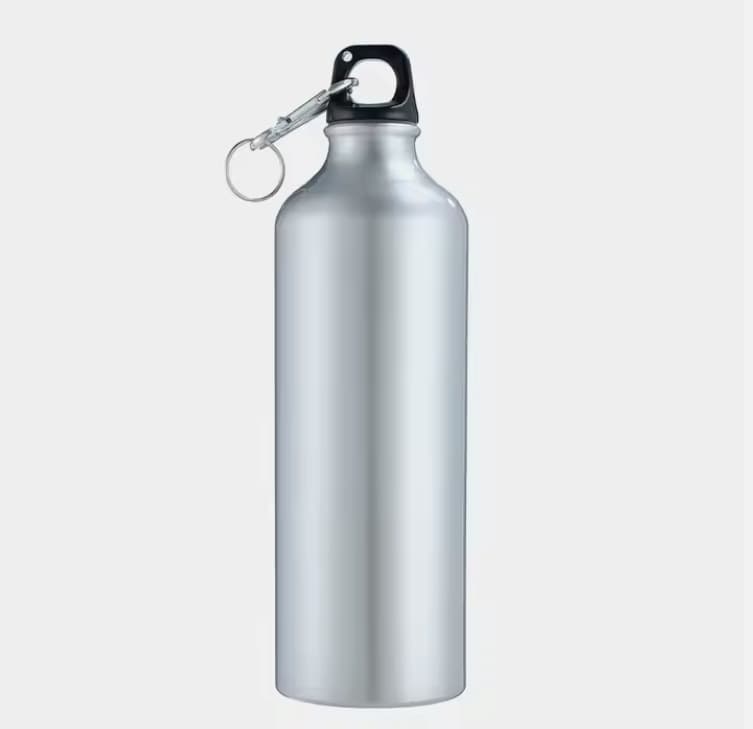
Acier inoxydable et autres matériaux
En termes de santé, l'acier inoxydable, le verre et le silicone ont leurs propres avantages et inconvénients. Ce sont tous des matériaux courants pour les bouteilles d'eau et ils sont tous performants en termes de santé et de sécurité, mais ils se distinguent par des scénarios d'utilisation et des caractéristiques spécifiques.
Du point de vue de la santé, l'acier inoxydable, le verre et le silicone sont des choix plus sûrs, chacun convenant à des scénarios d'utilisation différents. L'acier inoxydable excelle en termes de durabilité et de stabilité chimique, et convient aux utilisations à long terme ou à la conservation de la chaleur. Les bouteilles d'eau en verre sont les plus performantes en termes de santé et de conservation de la saveur originale des boissons, mais leur fragilité et leur poids limitent les scénarios d'utilisation. Les gourdes en silicone conviennent aux activités sportives et de plein air en raison de leur portabilité et de leur sécurité, mais leur durabilité à long terme est légèrement insuffisante. Par conséquent, le choix du matériau utilisé pour la bouteille d'eau dépend principalement des besoins et des préférences d'utilisation personnels.
Recommandations pour différents scénarios d'utilisation
Utilisation au bureau et à la maison : Recommander des matériaux sains pour une utilisation à long terme
Au bureau et à la maison, les bouteilles d'eau sont utilisées fréquemment et sont généralement en contact avec les boissons pendant une longue période. Il est donc important de choisir un matériau sûr, durable et sain pour les bouteilles d'eau. Les bouteilles d'eau en acier inoxydable et en verre sont les meilleurs choix dans ce cas. Les bouteilles d'eau en acier inoxydable peuvent maintenir la température et la qualité des boissons pendant longtemps grâce à leur excellente résistance à la corrosion et à leur effet de conservation de la chaleur, ce qui les rend adaptées aux journées de travail chargées ou à l'usage domestique. Les bouteilles d'eau en verre sont appréciées par de nombreuses personnes parce qu'elles ne réagissent pas avec les boissons, en particulier pour ceux qui aiment boire de l'eau purifiée, du thé ou du jus. Elles peuvent conserver la saveur originale de la boisson et ont une apparence élégante, convenant à une utilisation à la maison ou au bureau.
Activités de plein air et voyages : Le meilleur choix pour la portabilité et la sécurité
Les gourdes légères, durables et faciles à transporter sont particulièrement importantes pour les activités de plein air et les voyages. Les gourdes en silicone et en acier inoxydable sont les meilleurs choix dans ce cas. Les gourdes en silicone sont des compagnons idéaux pour les voyages et les activités de plein air, car elles sont légères, pliables et faciles à transporter. Ils permettent d'économiser de l'espace lorsqu'ils ne sont pas utilisés, et leur durabilité et leur douceur les rendent compétents dans divers environnements. Les gourdes en acier inoxydable sont durables et peuvent résister aux chocs et à la pression dans des conditions extérieures. De nombreuses bouteilles d'eau en acier inoxydable ont également de bonnes propriétés d'isolation thermique, ce qui permet de garder les boissons chaudes lors d'activités telles que la randonnée et le camping.
Sports et remise en forme : Exploration des matériaux de bouteilles d'eau saines convenant à un usage fréquent
Dans le domaine du sport et de la remise en forme, l'utilisation fréquente des bouteilles d'eau et les exigences élevées en matière de santé font qu'il est particulièrement important de choisir le bon matériau. Les bouteilles d'eau en acier inoxydable et en silicone sont les choix préférés dans ce scénario. Les gourdes en acier inoxydable sont durables, résistantes aux chocs et ne se déforment pas facilement, ce qui permet de maintenir une expérience d'utilisation stable pendant l'exercice. Elles sont généralement étanches et peuvent être rangées dans un sac de sport pour une utilisation immédiate. Les bouteilles d'eau en silicone sont également très adaptées aux scénarios sportifs en raison de leur légèreté et de leur facilité de prise en main, en particulier pour les athlètes qui ont besoin de transporter des bouteilles d'eau avec eux. La souplesse des matériaux en silicone ne pèse pas sur les mains pendant l'utilisation et permet de boire et de conserver l'eau rapidement.
En résumé, les besoins varient selon les scénarios d'utilisation. En fonction de l'environnement et de la fréquence d'utilisation, le choix du matériau de la bouteille d'eau peut améliorer l'expérience de l'utilisateur et garantir la santé et la sécurité.
Comment choisir le matériau de la bouteille d'eau qui vous convient le mieux
Choisir en fonction des habitudes de vie et des besoins personnels
Lorsque vous choisissez le matériau de votre gourde, vous devez d'abord tenir compte de vos habitudes de vie et de vos besoins spécifiques. Les bouteilles d'eau fabriquées à partir de matériaux différents diffèrent en termes d'expérience d'utilisation, de portabilité, de durabilité, de santé et de sécurité. Pour les utilisateurs qui doivent conserver la température de leurs boissons pendant longtemps, les gourdes en acier inoxydable constituent le meilleur choix. Leurs performances d'isolation supérieures et leur durabilité conviennent à un usage fréquent et à diverses occasions. Si vous êtes plus attentif au goût pur de la boisson, en particulier si vous aimez boire des boissons originales telles que du thé et du jus à la maison ou au bureau, les bouteilles d'eau en verre sont un choix plus idéal. Elle permet de conserver la saveur originale de la boisson et ne contient pas de substances nocives. Pour les personnes qui voyagent souvent ou qui aiment les activités de plein air, les bouteilles d'eau en silicone ou en aluminium, portables et légères, conviennent mieux. Elles sont faciles à transporter, peu encombrantes et suffisamment résistantes pour faire face à divers défis en plein air. En choisissant le bon matériau pour votre gourde en fonction de vos habitudes et de vos scénarios d'utilisation, vous pouvez garantir une expérience d'utilisation et une protection de la santé optimales.
Prendre en compte les facteurs de protection de l'environnement et de développement durable
Dans la société actuelle, la protection de l'environnement et le développement durable sont devenus des considérations importantes. Lors du choix du matériau des bouteilles d'eau, outre les besoins personnels, il convient de tenir compte du respect de l'environnement et de l'impact du matériau sur l'environnement. Les bouteilles d'eau en acier inoxydable et en verre sont des choix respectueux de l'environnement en raison de leur durabilité et de leur recyclabilité. Les bouteilles d'eau en acier inoxydable sont durables et peuvent être utilisées pendant de nombreuses années, ce qui réduit le gaspillage des ressources causé par un remplacement fréquent. En même temps, elles peuvent être entièrement recyclées après avoir été jetées, ce qui réduit la charge sur l'environnement. Les bouteilles d'eau en verre peuvent également être recyclées et recyclées, et la pollution de l'environnement est relativement faible au cours du processus de production. En revanche, bien que les bouteilles d'eau en plastique soient légères, elles ont progressivement été considérées comme un choix néfaste pour l'environnement en raison de la grande quantité de ressources consommées au cours de leur processus de production et de leur difficulté à se dégrader. Même certains plastiques annoncés comme biodégradables peuvent encore rencontrer des problèmes tels qu'une longue durée de dégradation et un faible taux de recyclage dans la pratique. Par conséquent, le choix de bouteilles d'eau en acier inoxydable ou en verre n'est pas seulement bénéfique pour la santé personnelle, mais contribue également au développement durable de la planète.
En conclusion
Après une comparaison approfondie de la santé, de la sécurité et de l'applicabilité des différents matériaux utilisés pour les bouteilles d'eau, l'acier inoxydable et le verre sont sans aucun doute les choix les plus sains. L'acier inoxydable est devenu le matériau le plus recommandé pour un usage quotidien en raison de son excellente durabilité, de sa stabilité chimique et de ses performances en matière de conservation de la chaleur. Le verre convient particulièrement aux utilisateurs attentifs au goût, en raison de sa pureté et de son absence d'effet sur le goût de la boisson. Ces deux matériaux répondent non seulement à la plupart des besoins quotidiens, mais sont également très performants en matière de protection de l'environnement et de développement durable.
Toutefois, le choix du matériau de la bouteille d'eau ne dépend pas uniquement de sa salubrité. Lorsqu'ils font leur choix, les consommateurs doivent également tenir compte de leurs habitudes de vie, de leurs scénarios d'utilisation et de leurs besoins réels, tels que la portabilité. Par exemple, les personnes qui sortent souvent ou font de l'exercice préfèrent les gourdes en silicone légères, tandis que les gourdes en verre ou en acier inoxydable sont plus adaptées à une utilisation au bureau ou à la maison.

